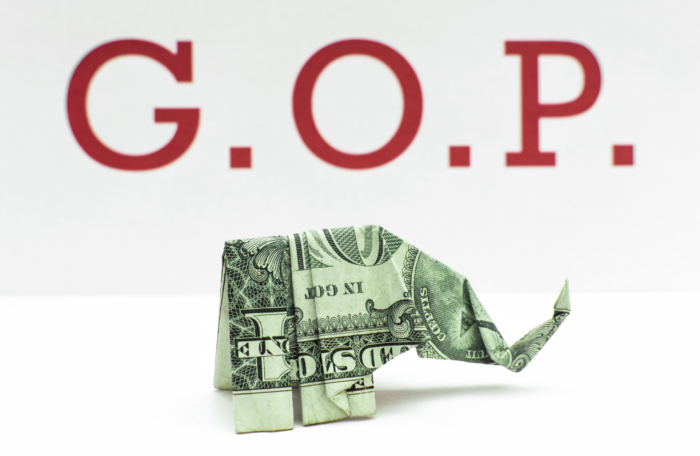Two New Hampshire state employees on Monday filed a federal class action suit against the State Employees Association (SEA) to recoup fees non-member employees were forced to pay the union.
Plaintiffs Patrick Doughty and Randy Severance hope to compel the SEA, a chapter of the Service Employees International Union, to repay all so-called “agency fees” collected over the past three years, which is as far back as the statute of limitations allows, according to their attorneys.
The pair are represented by attorneys from the National Right to Work Legal Defense Foundation. Serving as local counsel is attorney Bryan Gould of Concord. The suit was filed in U.S. District Court in Concord.
Doughty, an engineering technician in the Department of Transportation, joined the union when he was first hired in 2001, he told The Broadside, but resigned in 2012 over disagreements with the contract and the union’s increasingly left-wing political positions.
“I opted out because at the time the contract that the union voted for was, in my opinion, terrible, he said. “I wanted to try to recoup some of that money that I had to spend out. And they were also becoming so far left.”
Once out of the union, Doughty was required under the state’s collective bargaining agreement to continue paying fees to the union. Those agency fees were supposed to cover only the cost of collective bargaining, on the theory that all employees benefit from the terms negotiated by the union.
But Doughty and Severance say they didn’t agree with the union’s politics or the contracts it negotiated.
“Being a government employee and being under the contract, you’re kind of held to what you can get under the contract,” Doughty said. “There’s no merit raises or other things you can get when you work for a private outfit.”
Severance, who works in the Department of Information Technology, said the contract actually prevented him from obtaining higher compensation.
“I’m pretty good at my job,” he said. “I’m above average. And when you’re group-negotiating and you’re above average, you’re being dragged down. In the private sector, I could go to my boss and negotiate according to my skills and my level of work. But I can’t do that here. I’m getting paid the same as the lazy ne’er do well who doesn’t get his work done. The union says, ‘well, we negotiate in your favor.’ I say, ‘that’s not doing me any good.’”
Severance said he started working for the state in 2000 and never joined the union. When the union later began collecting agency fees, he objected. When his complaints were dismissed, he sued unsuccessfully to halt the collection.
“Every opportunity I had, I put up a fuss, complained about it, but there’s only so much you can do. Then the Janus decision came down and I contacted the National Right to Work Foundation,” he said.
Last June, the U.S. Supreme Court ruled in Janus vs. American Federation of State, County, and Municipal Employees that agency fees were an unconstitutional violation of public employees’ First Amendment rights.
Though the state stopped collecting agency fees on behalf of the State Employees Association immediately after the Janus ruling came down, Severance and Doughty each contacted the National Right to Work Foundation independently, seeing the ruling as an opportunity to undo an injustice.
“It’s not really that I’m anti-union,” Doughty said. “It’s just the fact that they never really had the right to take fees from people who didn’t want to join.”
Severance gave similar reasons.
“I reached out to them when I read about the Janus decision and I read about other states that were suing to claw back some of the misappropriated paychecks. I got on their website and found the ‘contact me’ button,” he said.
“Generally speaking, it’s been about $50 a paycheck, and two and a quarter paychecks a month for three years. So about $4,000. There’s no Bermuda vacation in this, and it’s not about the money. It’s about the principle. And the class action.”
The National Right to Work Legal Defense Foundation was not certain how many state employees would be covered if the court grants class action status. But the Josiah Bartlett Center for Public Policy discovered through a public records request last July that the SEA was collecting agency fees from 2,104 state employees when the Janus ruling was handed down on June 27.
Non-union state employees were forced to pay more than $1 million in agency fees to the SEA and the Teamsters in the year before the Janus ruling terminated those fees, state records showed, with almost all of that going to the much larger SEA. If successful, the new lawsuit could cost the SEA millions of dollars.
Patrick Semmens, vice president of the National Right to Work Legal Defense Foundation, said all non-union employees forced to pay fees to the State Employees Association had their First Amendment rights violated and deserve compensation.
“We’ve always believed that the idea that you can be forced to subsidize an organization so that they can speak to your government on your behalf is a free speech violation. Finally the Supreme Court caught up.”
The State Employees Association did not have a response to this story by press time.









